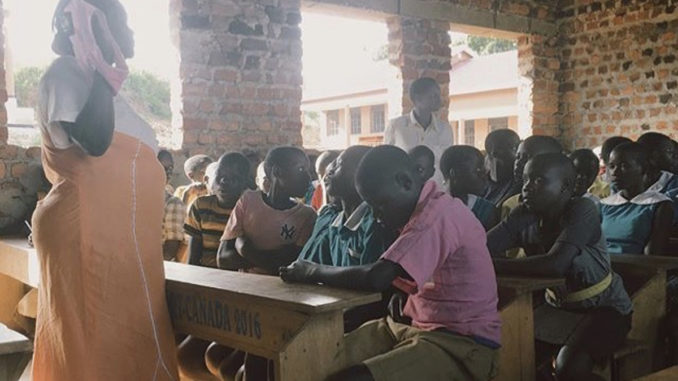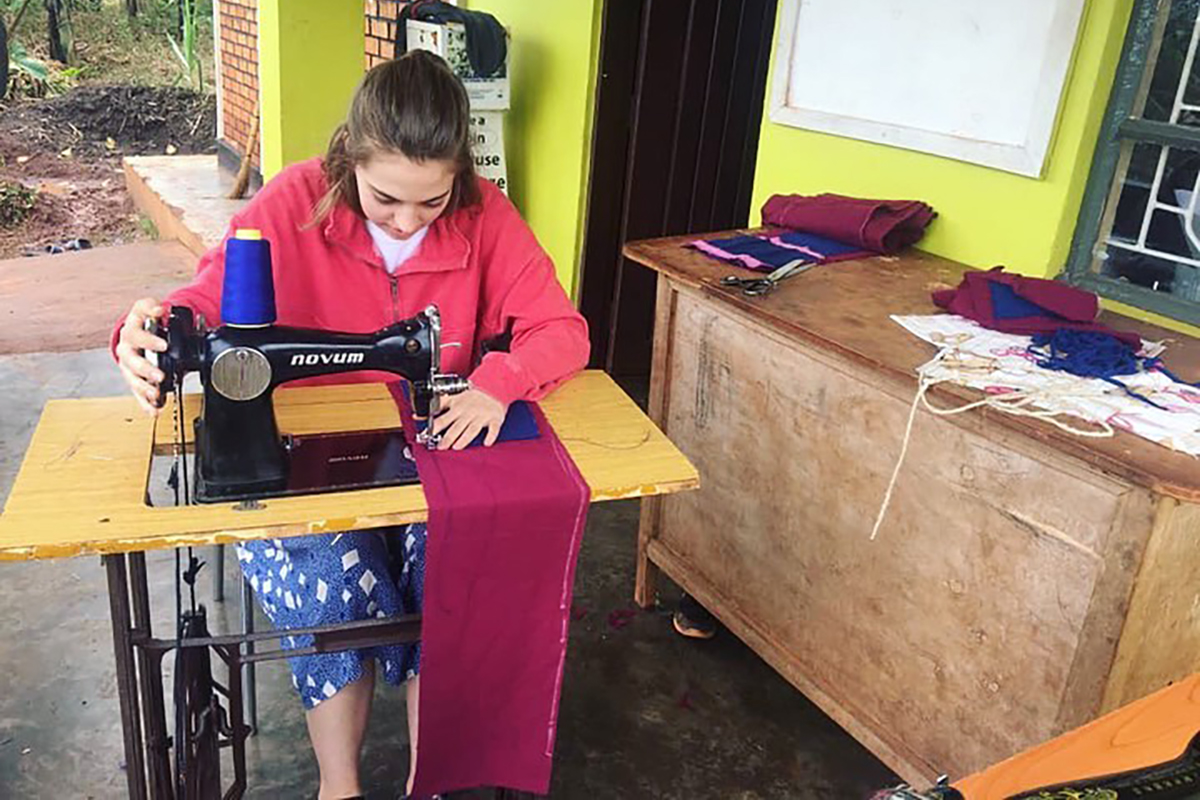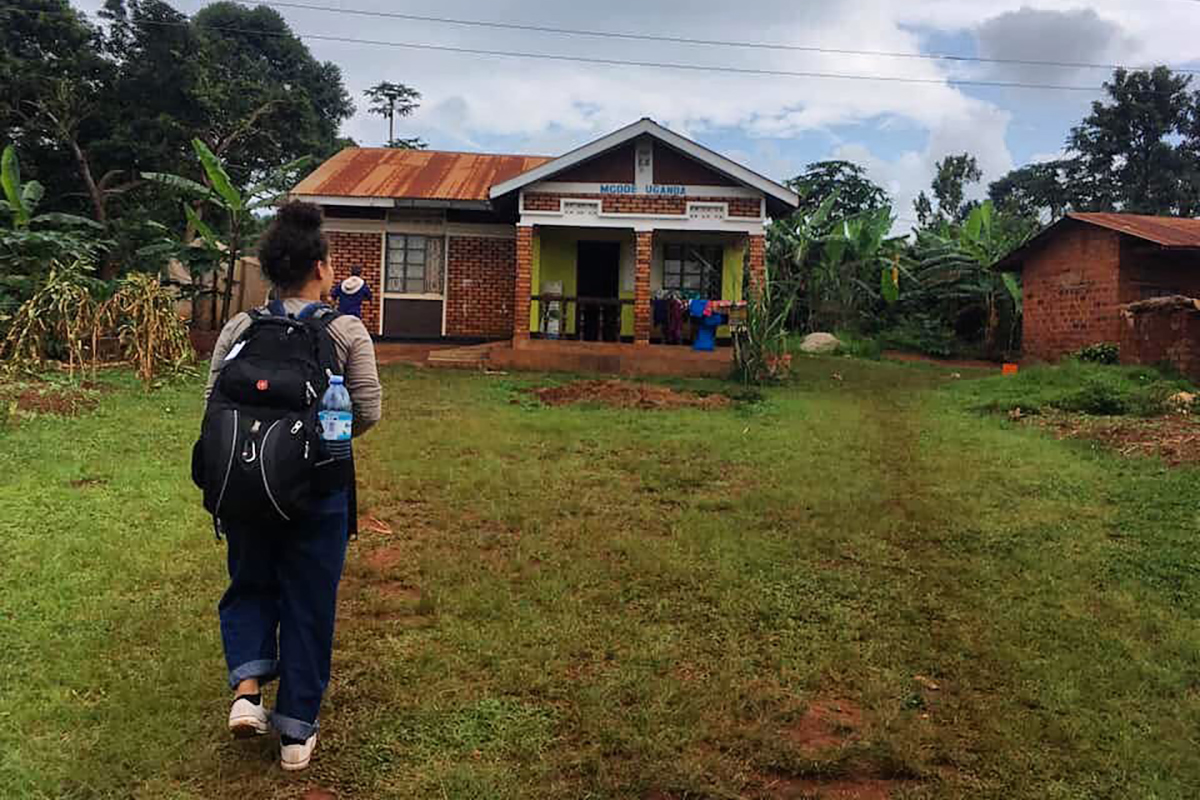
Truman State University’s chapter of GlobeMed offers opportunities for students of all majors to make a difference in the world through service and fundraising for a charitable cause.
GlobeMed is an international organization that connects chapters on college campuses with global health non-profit organizations that are seeking to improve some aspect of their community.
Truman’s chapter of GlobeMed was established in 2006 when it began partnering with the organization Maison de Naissance in Haiti, and after 10 years of work, it was determined that Maison de Naissance could sustain itself without help from Truman’s chapter.
In spring 2016, the began work with its current partner, Mission for Community Development, in Buikwe, Uganda.
Truman’s branch voted as a chapter to partner with MCODE in spring 2016 because the chapter wanted an organization that would empower women and girls, and MCODE’s program for menstrual health education allowed them to do that, Allison Rice, co-president of Truman’s chapter, said.
Morgan Payne, community building director of Truman’s chapter of GlobeMed, said the main focus of GlobeMed at Truman is a project called “Breaking the Silence,” which promotes menstrual health education, provides supplies to the community and reduces the stigma and lack of information about menstruation in rural communities in Uganda, Payne said.
Payne said much of the stigma stems from a lack of information on the subject, and one way Truman GlobeMed tries to combat this is through providing menstrual health education to boys and girls in schools in rural Uganda.
“It wasn’t just the fact that there wasn’t the education there,” Rice said. “It was the fact that girls started not going to school because they were on their periods or because they were getting teased. That was just something that, as a chapter, we felt really passionate about — being able to empower individuals with this.”
Rice said GlobeMed at Truman hosts many events throughout the semester to raise money for MCODE, with one big event every fall and spring semester where all the profits and proceeds go directly to MCODE.
Last academic year, GlobeMed at Truman was able to meet its fundraising goal of $3,000, which helped fund the various initiatives and programs MCODE supports, Andrew Zieba, co-president of Truman’s chapter, said.
In the fall, Truman’s chapter hosts “Rave to Save,” and in the spring it typically hosts a benefit dinner or brunch where students and faculty can pay to attend the meal and hear various speakers.
The smaller fundraising campaigns often involve selling food, tabling to receive donations or selling raffle tickets to win gift cards.
This past year Truman’s chapter held its “$4 Campaign” during which it encouraged students to consider the impact just $4 could have in the life of someone in need.
The fundraising campaign was based on the fact that one menstruation kit containing reusable pads costs approximately $4, and that having access to menstruation products could keep a student in rural Uganda in school for two years, Rice said.
One newly implemented aspect of Truman’s chapter of GlobeMed is the use of online fundraising rather than strictly in-person donations which allows for fundraising outside of the immediate Kirksville area, Rice said.
Every summer Truman’s chapter sends a Grassroots Onsite Work team to the location of the partner organization to actively help it achieve its yearly goals.
The team visits schools in rural Uganda and gives out a pre-survey to students about their current knowledge on menstrual health and hygiene to get a baseline, Rice said.
Rice said a lack of information about the subject is a problem in the community, and the survey allows MCODE to gauge how much it affects the students there.
The survey asks questions about what the students there currently use to manage menstruation, how menstruation affects their daily lives and interactions with other students and about the attitudes and misconceptions students had about menstruation.
MCODE then uses that information to form an educational plan for how they aim to provide the students with accurate information about menstruation while also working to reduce the stigma associated with menstruation and menstrual health.
Lubanga Kayondo, MCODE founder and director, usually leads the lectures on menstrual health and then the team distributes the kits to young girls, Payne said.
Payne said that based on the data they gathered from post-surveys, upwards of 70% of the girls they visited the previous year were still using their kits and still benefiting from their experience with the program.
This past summer a GROW team also worked to educate students about menstrual health and hygiene, but added a new mission of helping a menstrual and maternal support group that already existed in the community.
Payne said one new initiative that MCODE has taken on is nutritional support for pregnant women, toddlers and infants.
MCODE and GROW team members would planted seeds in front of the homes of mothers and expectant mothers so they had easy access to a vegetable garden that would ensure better nutrition for them and their children, Payne said.
Payne also discussed a program which plants different forms of produce in people’s yards so they can harvest the crops and sell them as exports for a profit in order to provide them with both food and money to be more self-sufficient.
Payne said she liked GlobeMed when she joined, but since going on the GROW trip and becoming more involved in the organization, she has formed a greater connection with and appreciation for Truman’s chapter.
“I love GlobeMed a lot,” Payne said. “I love what it stands for. The national organization, I love what it’s founded on, and there’s a lot of philosophies that I want to take into being a doctor and [into] public health.”
Each semester, Truman’s chapter opens applications to join GlobeMed and hosts informational nights where students can learn about the organization.
GlobeMed is open to students of all majors and disciplines and has recently worked to attract students with different skill sets and ways of thinking.
“You don’t have to be a health science major or a bio major. We want people that are diverse,” Zieba said. “Advocating for social justice requires people with all kinds of different skills, so this year we’re looking to diversify our general body.”
The application has students explain their areas of interest and why they want to be a part of the organization. Applicants are then interviewed to determine their fit within the organization.
The primary goal of GlobeMed is to assess the specific needs of the communities its chapters serve and to work as partners with the community leaders to allow the local organization to sustain itself, Rice said.
“It really shouldn’t be about what we think they need,” Rice said. “It should be about communicating with them what they need and us being able to help them. There needs to be a factor of sustainability where we can help them to the point where they don’t need our help anymore, but also to where we’re actively listening to their needs.”
Each chapter of GlobeMed works with one other organization across the world, and organizations submit applications describing their goals to chapters that then decide who they would like to partner with.
“It’s a really good way to be doing something positive for the planet,” Payne said. “It’s not a huge time commitment. It’s just an hour a week.”
Zieba said that since getting more involved in GlobeMed, he has become more social justice minded and passionate about advocating for others.
The program is about having the ability and resources to talk about issues that do not often get talked about, which the organization can help to teach people, Zieba said.
For more information on Truman’s chapter of GlobeMed and how to donate online, check out their Facebook page, GlobeMed at Truman State University.


